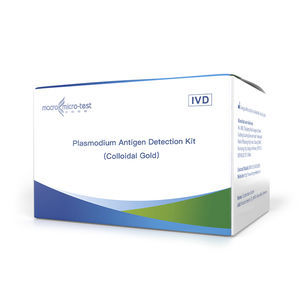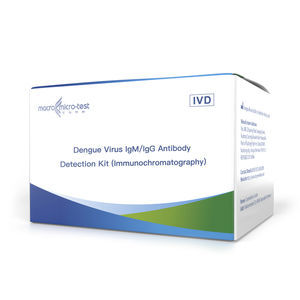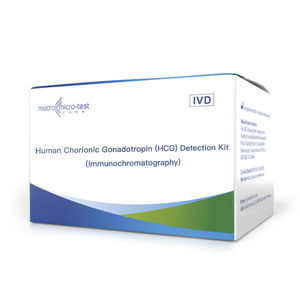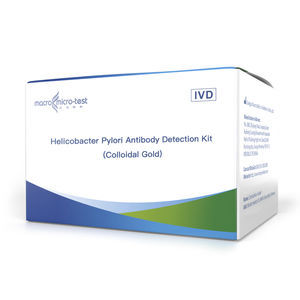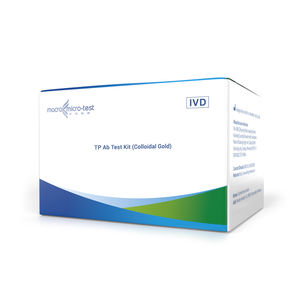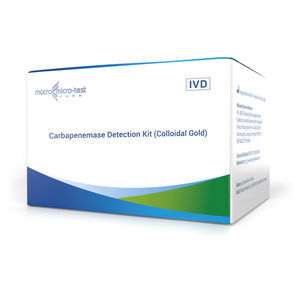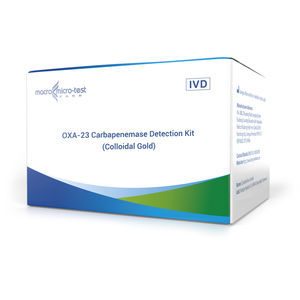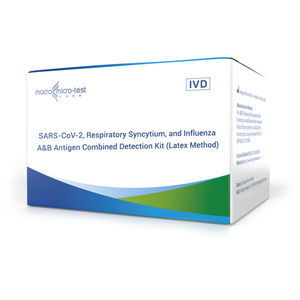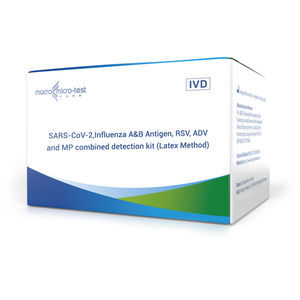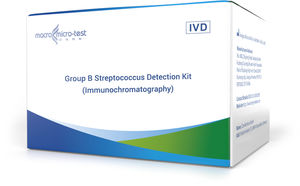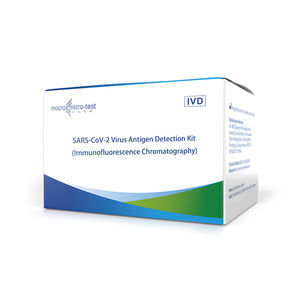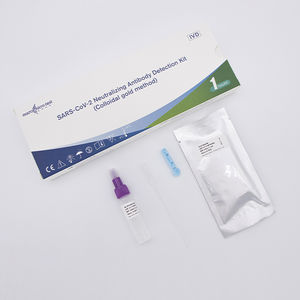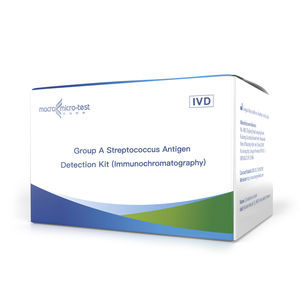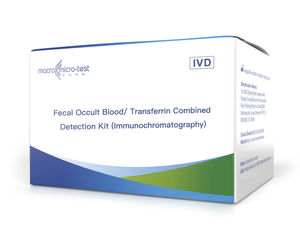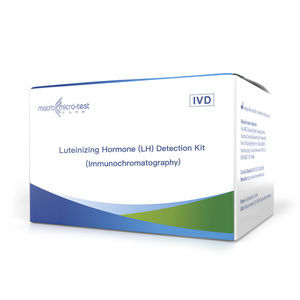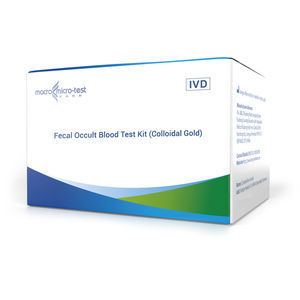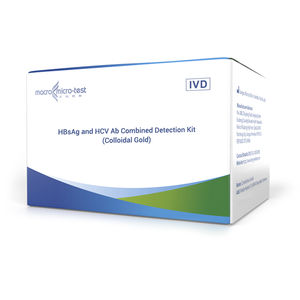
- Laboratory
- Laboratory medicine
- Infectious disease test kit
- Jiangsu Macro micro-test Medical Technology

- Company
- Products
- Catalogs
- News & Trends
- Exhibitions
Infectious disease test kit HWTS-EV016for antigensadenovirusstool
Add to favorites
Compare this product
Characteristics
- Applications
- for infectious diseases
- Tested parameter
- for antigens
- Micro-organism
- adenovirus
- Sample type
- stool
- Analysis mode
- immunochromatographic
- Format
- cassette, strip
- Other characteristics
- custom, self-test
Description
This kit is used for in vitro qualitative detection of group A rotavirus or adenovirus antigens in stool samples of infants and young children.
Epidemiology
Rotavirus (Rv) is an important pathogen causing viral diarrhea and enteritis in infants worldwide, belonging to the reovirus family, is a double-stranded RNA virus. Group A rotavirus is the main pathogen causing severe diarrhea in infants and young children. Rotavirus with the virus excreted feces, through the fecal route infected patients, the proliferation of cells in the duodenal mucosa of the children affected the normal absorption of salts, sugars and water in the intestines of the children, resulting in diarrhea.
Adenovirus (Adv) belongs to the Adenovirus family. Type 40 and 41 of Group F can induce diarrhea in infants. They are the second most important pathogen in viral diarrhea in children, next to rotavirus. The main transmission route of adenovirus is fecal-oral transmission, the incubation period of infection is about 10 days, and the main symptoms are diarrhea, accompanied by vomiting and fever.
Technical Parameters
Target region - Group A rotavirus and adenovirus
Storage temperature - 2℃-30℃
Sample type - Stool samples
Shelf life - 12 months
Auxiliary instruments - Not required
Extra Consumables - Not required
Specificity -
detection of bacteria by kit include: group B streptococcus, haemophilus influenzae, group C streptococcus, candida albicans, pseudomonas aeruginosa, klebsiella pneumoniae, staphylococcus aureus, enterococcus faecium, enterococcus faecalis, neisseria meningococcus, neisseria gonorrhoeae, acinetobacter , proteus mirabilis,
Other Jiangsu Macro micro-test Medical Technology products
Colloidal Gold Chromatography
Related Searches
- Assay kit
- Solution reagent kit
- Blood assay kit
- Serum assay kit
- Immunoassay assay kit
- Plasma assay kit
- Infectious disease detection kit
- Blood rapid diagnostic test
- Diagnostic reagent kit
- Immunoassay rapid diagnostic test
- Molecular test kit
- Cassette rapid diagnostic test
- Rapid virus test
- Respiratory infection test kit
- Whole blood detection kit
- Serum rapid diagnostic test
- Plasma rapid diagnostic test
- Optical assay kit
- Clinical assay kit
- Infectious disease rapid diagnostic test
*Prices are pre-tax. They exclude delivery charges and customs duties and do not include additional charges for installation or activation options. Prices are indicative only and may vary by country, with changes to the cost of raw materials and exchange rates.



